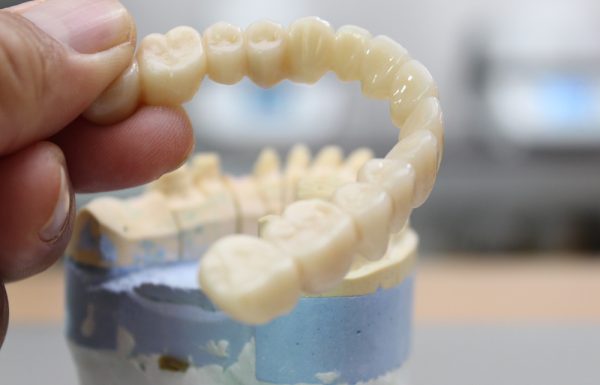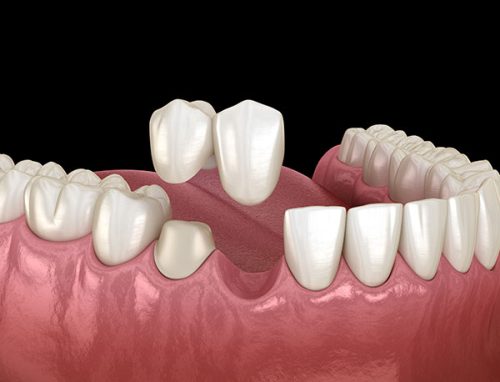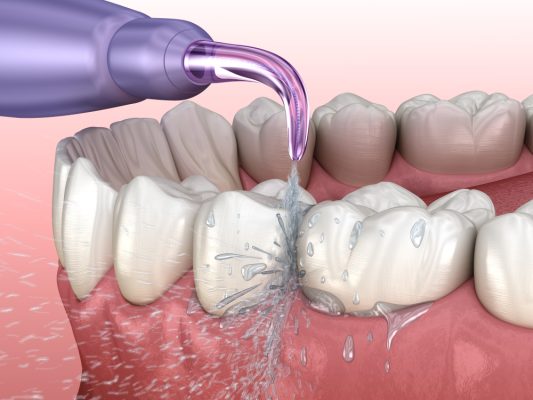Take Back Your Complete Smile at Glenwood Dental Associates
Whether you’ve lost teeth due to injury, decay, or periodontal disease, dental bridges can transform your oral health and quality of life. Our advanced bridge techniques combine durability with natural beauty, creating restorations that look and feel like your original teeth.
Ready to explore your dental bridge options? Call Glenwood Dental Associates at (302) 653-5011 to schedule your consultation with Dr. Wisk today. Our Smyrna dentists welcome new patients from Clayton, Dover, and Middletown who are ready to restore their complete, healthy smiles.
Excellence in Restorative Dentistry in Smyrna, DE
Glenwood Dental Associates combines the charm of historic Smyrna with cutting-edge dental technology at our convenient West Glenwood Avenue location. Our dental practice sits in the heart of Delaware’s oldest town, surrounded by centuries of history and community tradition that mirrors our commitment to lasting relationships with patients.
Dr. Brian Wisk brings extensive experience in restorative dentistry, understanding that successful bridges require both technical precision and artistic vision to create restorations that seamlessly integrate with your natural smile. Our modern facility features advanced impression materials, digital imaging technology, and partnerships with premier dental laboratories to deliver bridges that exceed expectations while maintaining the personalized care that defines our practice philosophy.
What Is a Dental Bridge?

Types of Dental Bridges Available in Smyrna
Traditional Dental Bridges
- Crown-Supported Bridges: The most common type, featuring pontics held securely by dental crowns cemented onto healthy adjacent teeth. These bridges provide excellent stability and durability for single or multiple missing teeth when strong abutment teeth are available.
- Multi-Unit Restorations: Traditional bridges can replace several consecutive missing teeth, distributing chewing forces evenly across multiple abutment teeth. This approach offers comprehensive smile restoration with proven long-term success rates.
Implant-Supported Bridges
- Implant-Anchored Solutions: Advanced bridges secured by dental implants surgically placed in the jawbone, eliminating the need to alter healthy adjacent teeth. These restorations offer superior stability and help preserve jawbone structure over time.
- Multiple Implant Support: For extensive tooth loss, bridges can be supported by several strategically placed implants, providing rock-solid stability and maximum chewing force restoration comparable to natural teeth.
 Cantilever Bridges
Cantilever Bridges
- Single-Side Support: Specialized bridges anchored to teeth on only one side of the gap, suitable when healthy teeth exist on just one side of the missing tooth area. These bridges work well for specific situations but require careful case selection.
- Conservative Applications: Cantilever bridges minimize the number of teeth requiring preparation while still providing fixed tooth replacement, making them ideal for certain front tooth replacements.
Maryland Bridges
- Resin-Bonded Options: Conservative bridges using metal or ceramic frameworks bonded to the back surfaces of adjacent teeth without requiring full crown preparation. These bridges preserve maximum natural tooth structure while providing tooth replacement.
- Front Tooth Solutions: Maryland bridges work particularly well for replacing single front teeth in patients with healthy adjacent teeth, offering minimal invasiveness and faster treatment completion.
Benefits of Choosing Dental Bridges
Modern dental bridge treatment provides numerous advantages for patients dealing with tooth loss:
- Restored Chewing Function: Bridges allow you to eat comfortably and efficiently, enabling proper nutrition and digestive health. Missing teeth often force patients to avoid certain foods, leading to dietary limitations that bridges completely eliminate.
- Improved Speech Clarity: Gaps in your smile can cause lisping, whistling, or mumbling during conversation. Properly designed bridges restore normal tongue positioning and airflow patterns, dramatically improving pronunciation and communication confidence.
- Enhanced Facial Support: Missing teeth cause surrounding facial muscles to sag, creating premature aging around the mouth and cheeks. Bridges provide internal support that maintains youthful facial contours and prevents the sunken appearance associated with tooth loss.
- Prevention of Tooth Movement: Adjacent teeth naturally drift into spaces left by missing teeth, causing misalignment, bite problems, and increased cavity risk. Bridges maintain proper tooth positioning and prevent costly orthodontic problems.
- Long-Term Durability: Quality dental bridges typically last 10-15 years or longer with proper care, providing excellent value compared to repeated temporary solutions. Implant-supported bridges often last even longer due to their superior stability.
- Natural Appearance: Modern bridge materials and techniques create restorations virtually indistinguishable from natural teeth. Advanced ceramics match your existing teeth’s color, translucency, and surface characteristics perfectly.
- Fixed Convenience: Unlike removable partial dentures, bridges stay in place permanently, eliminating embarrassing slipping, clicking, or removal requirements. This convenience allows normal eating, speaking, and social interaction without concern.
How the Dental Bridge Process at Glenwood Dental Works
Our systematic approach delivers comfortable, well-fitting bridges through careful planning and precision:
- Comprehensive Evaluation: Dr. Wisk examines your oral health, takes digital X-rays, and evaluates abutment teeth to determine the most appropriate bridge type for your specific situation and goals.
- Treatment Planning: We develop a detailed treatment plan outlining the recommended bridge design, materials, timeline, and costs while addressing any preliminary treatments needed before bridge placement.
- Abutment Preparation: Adjacent teeth are carefully shaped to accommodate crowns, removing a small amount of enamel to create proper space and retention form for the bridge components.
- Precise Impressions: Multiple impressions capture exact details of prepared teeth, bite relationships, and surrounding structures to create bridges that fit perfectly and function optimally.
- Temporary Protection: A temporary bridge protects prepared teeth and maintains aesthetics and function while your permanent restoration is being fabricated in our dental laboratory.
- Try-In and Adjustments: We evaluate the fit, bite, and appearance of your new bridge, making any necessary adjustments for optimal comfort, function, and aesthetics before final cementation.
- Final Placement: Your completed bridge is permanently cemented using advanced dental adhesives, creating a secure, long-lasting restoration that becomes part of your natural smile.
- Follow-Up Care: Post-placement appointments monitor healing, check bite relationships, and provide detailed care instructions to maximize your bridge’s longevity and your oral health.
Ideal Candidates for Dental Bridges
Dental bridge treatment benefits various patients experiencing specific tooth loss situations:
- Patients with Healthy Adjacent Teeth: Individuals with strong, stable teeth on either side of the gap that can serve as reliable abutments for traditional bridge support and retention.
- Single or Multiple Missing Teeth: People missing one to several consecutive teeth who want fixed replacement options that don’t require removal for cleaning or maintenance.
- Good Overall Oral Health: Patients with healthy gums, adequate bone support, and no active infections who can maintain proper oral hygiene around bridge restorations.
- Stable Bite Relationships: Individuals with proper jaw alignment and bite patterns that won’t place excessive stress on bridge restorations during normal function.
- Committed to Maintenance: People willing to practice excellent oral hygiene, attend regular dental visits, and follow care instructions to maximize bridge longevity and prevent complications.
- Seeking Permanent Solutions: Patients who prefer fixed restorations over removable options and want tooth replacement that functions and feels like natural teeth.
Bridge Care and Maintenance Guidelines
Proper bridge care maximizes restoration longevity and maintains oral health:
Daily Oral Hygiene: Brush twice daily with fluoride toothpaste and soft-bristled brushes, paying special attention to areas where bridges meet natural teeth and gums to prevent plaque accumulation.
- Specialized Flossing Techniques: Use floss threaders, interdental brushes, or water flossers to clean under bridge pontics where regular floss cannot reach, removing food particles and bacteria.
- Regular Professional Care: Schedule dental cleanings and examinations every six months to monitor bridge condition, check for signs of wear or damage, and maintain optimal oral health.
- Dietary Considerations: Avoid excessively hard, sticky, or chewy foods that could damage or dislodge bridges, including ice, hard candies, caramel, and tough meats that require excessive force.
- Protective Measures: Wear nightguards if you grind or clench teeth, avoid using teeth as tools, and address any bite problems promptly to prevent bridge damage or failure.
Frequently Asked Questions
Well-maintained dental bridges typically last 10-15 years, with many lasting even longer when properly cared for and regularly monitored. Implant-supported bridges often have greater longevity due to their superior stability and bone preservation benefits. Factors affecting bridge lifespan include oral hygiene habits, dietary choices, bite forces, and regular professional maintenance. Dr. Wisk monitors bridge condition during routine visits and recommends replacement when necessary to maintain optimal function.
Modern dental bridges are designed to blend seamlessly with your existing teeth, matching color, shape, size, and translucency characteristics perfectly. Dr. Wisk works with skilled laboratory technicians who specialize in creating natural-looking restorations using advanced ceramic materials. The bridge pontics are carefully crafted to emerge from the gums naturally, while the overall design maintains proper proportions and aesthetics. Most patients find their bridges virtually indistinguishable from natural teeth.
The bridge procedure is performed using local anesthesia to eliminate discomfort during tooth preparation and bridge placement. Most patients experience minimal discomfort during treatment, with any post-procedure sensitivity typically resolving within a few days. Temporary bridges protect prepared teeth between appointments, maintaining comfort and function throughout the treatment process. Dr. Wisk uses gentle techniques and provides appropriate pain management recommendations for optimal patient comfort.
Most patients can eat normally with dental bridges after a brief adjustment period, though some dietary modifications may be recommended initially. Avoid excessively hard foods like ice or nuts, sticky candies that could dislodge the bridge, and tough meats requiring excessive chewing force. Well-fitted bridges restore most normal chewing function, allowing you to enjoy a varied, nutritious diet confidently. Start with softer foods initially and gradually return to your normal diet as you become comfortable with the bridge.
Replace Multiple Missing Teeth With Dental Bridges
Ready to restore your complete smile and regain your confidence? Glenwood Dental Associates makes quality dental bridges accessible and comfortable for families throughout Delaware. Our experienced team combines modern technology with compassionate care to deliver bridge solutions that transform lives.
Contact our Smyrna dental clinic at (302) 653-5011 to schedule your consultation and discover how custom dental bridges can help you smile, speak, and eat with renewed confidence. We invite patients from surrounding areas, including Dover, Clayton, and Kenton, to experience our exceptional restorative dental services.
 Cantilever Bridges
Cantilever Bridges Daily Oral Hygiene
Daily Oral Hygiene